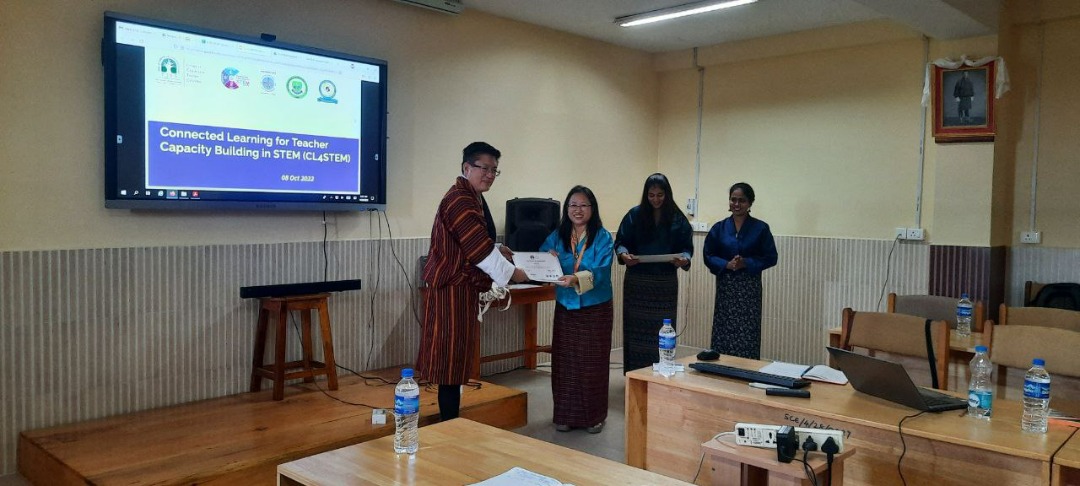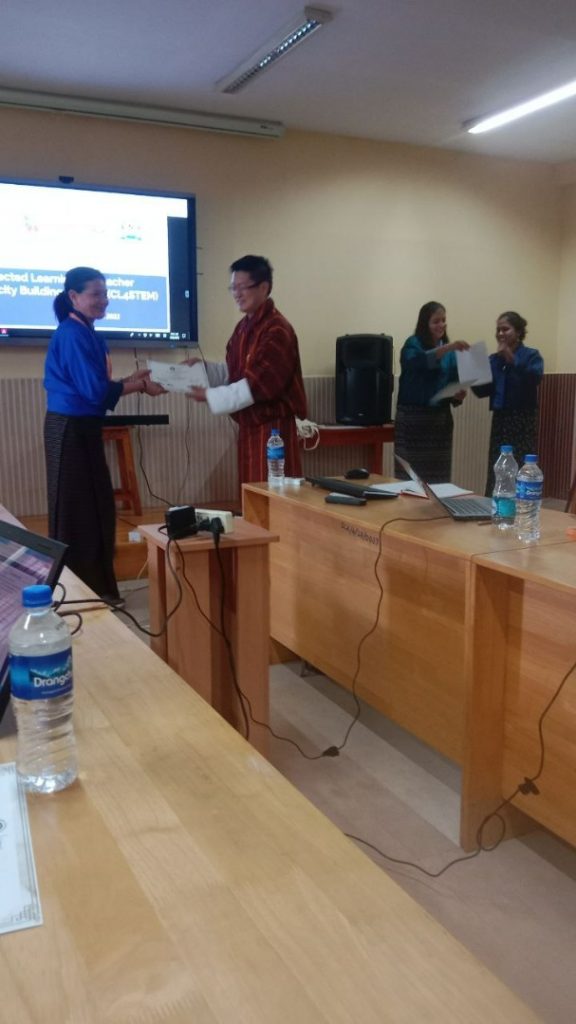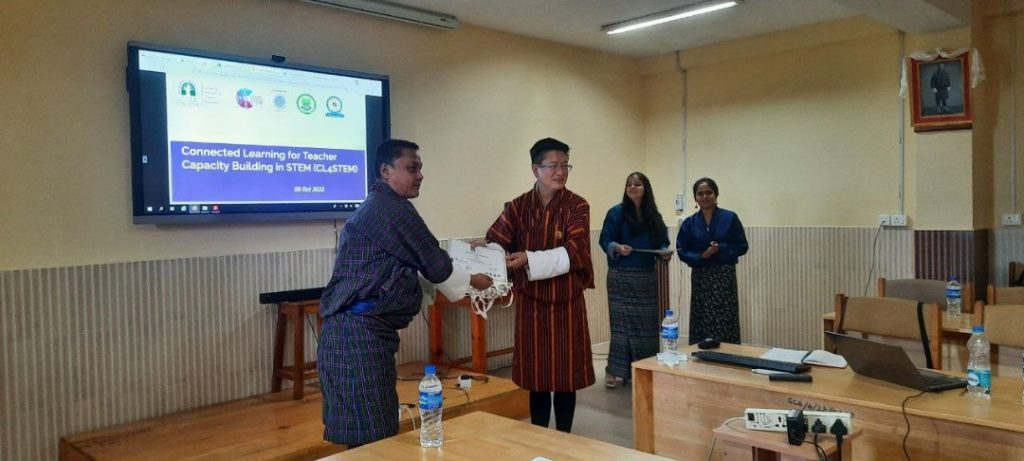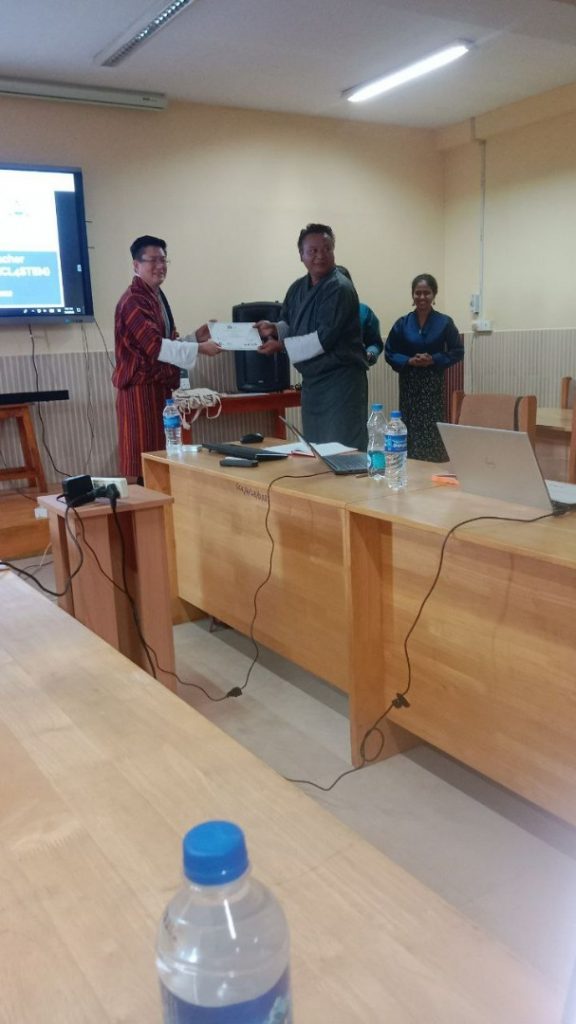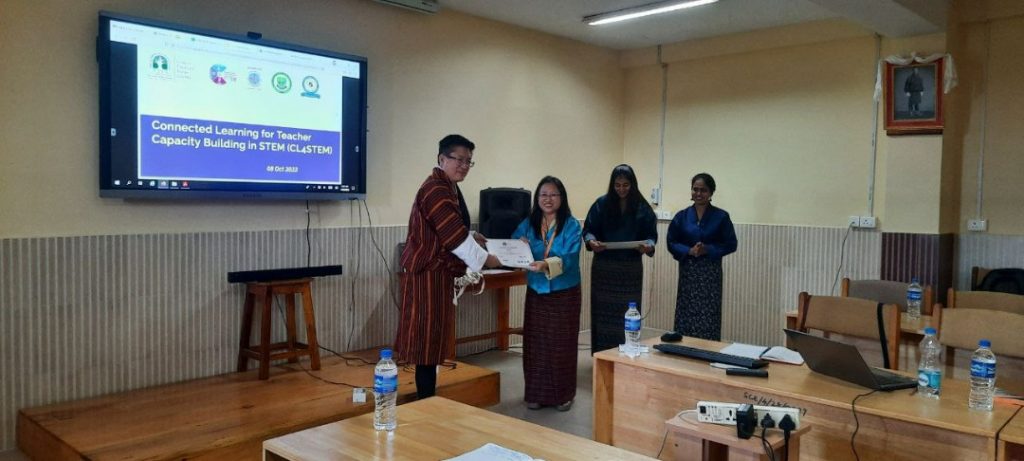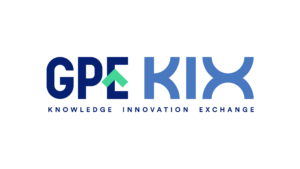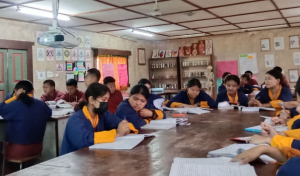Bhutan, a small landlocked country located in the Eastern Himalayas that provides free education from primary to tertiary levels, places great emphasis on STEM education to encourage innovation, promote economic growth, and address social issues. The government of Bhutan has always given priority to STEM education by implementing different plans and policies such as developing a robust curriculum, building infrastructure, and providing professional development opportunities to teachers. In line with the initiative of the Ministry of Education and Skills Development (MoESD), the CL4STEM (Connecting Learning for Teacher Capacity Building in STEM) project housed at Samtse College of Education in partnership with Ibrahim Badamasi Babangida University, Lapai (IBBUL), Nigeria, Open University of Tanzania (OUT), Tanzania, and Tata Institute of Social Sciences (TISS), Mumbai, India, was implemented to build the capacities of secondary school STEM teachers in areas such as content enrichment, integration of ICT, and inclusive pedagogies. The project complemented the MoESD’s ongoing efforts to improve STEM education.
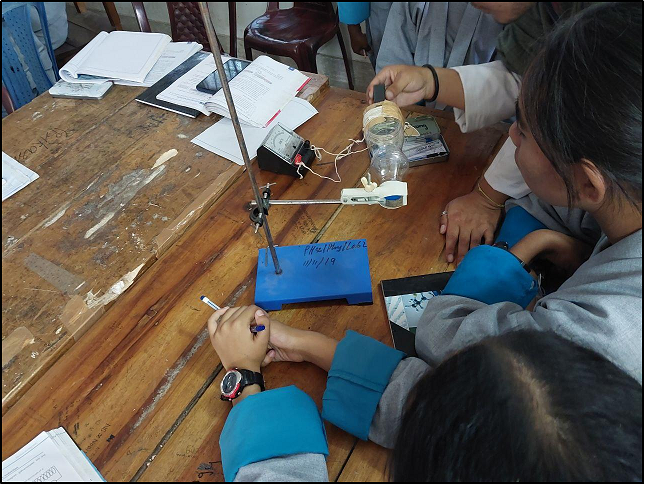
Some of the initial activities of the project were the capacity building of Teacher Educators in Universal Design for Learning, Design Thinking and Equity and Inclusion as part of the Knowledge Transfer phase of the project. This training was further employed to develop an open education resources (OER) to support the professional development of 83 in-service and pre-service STEM teachers, and the impact of this innovation was measured using various research tools.
So far, the Bhutan CL4STEM project received positive support from various education stakeholders, including MoE officials, district education officers, school principals, and secondary STEM in-service and pre-service teachers.
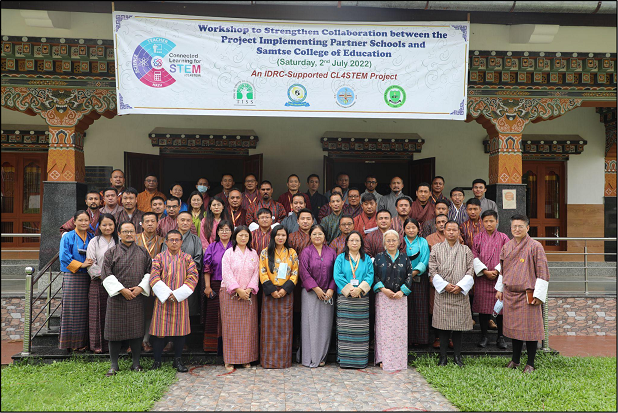
Preliminary research findings reveal that the CL4STEM project has been a successful initiative in building the capacity of secondary STEM teachers in Bhutan. The project has demonstrated the significance of investing in teachers’ professional development to improve the quality of education – see Situation Analysis Report. The strong support from education stakeholders and the collaboration with international partners, local organizations, and individuals have been critical to the project’s success. It is hoped that the project will continue to have a long-term positive impact on STEM education in Bhutan

